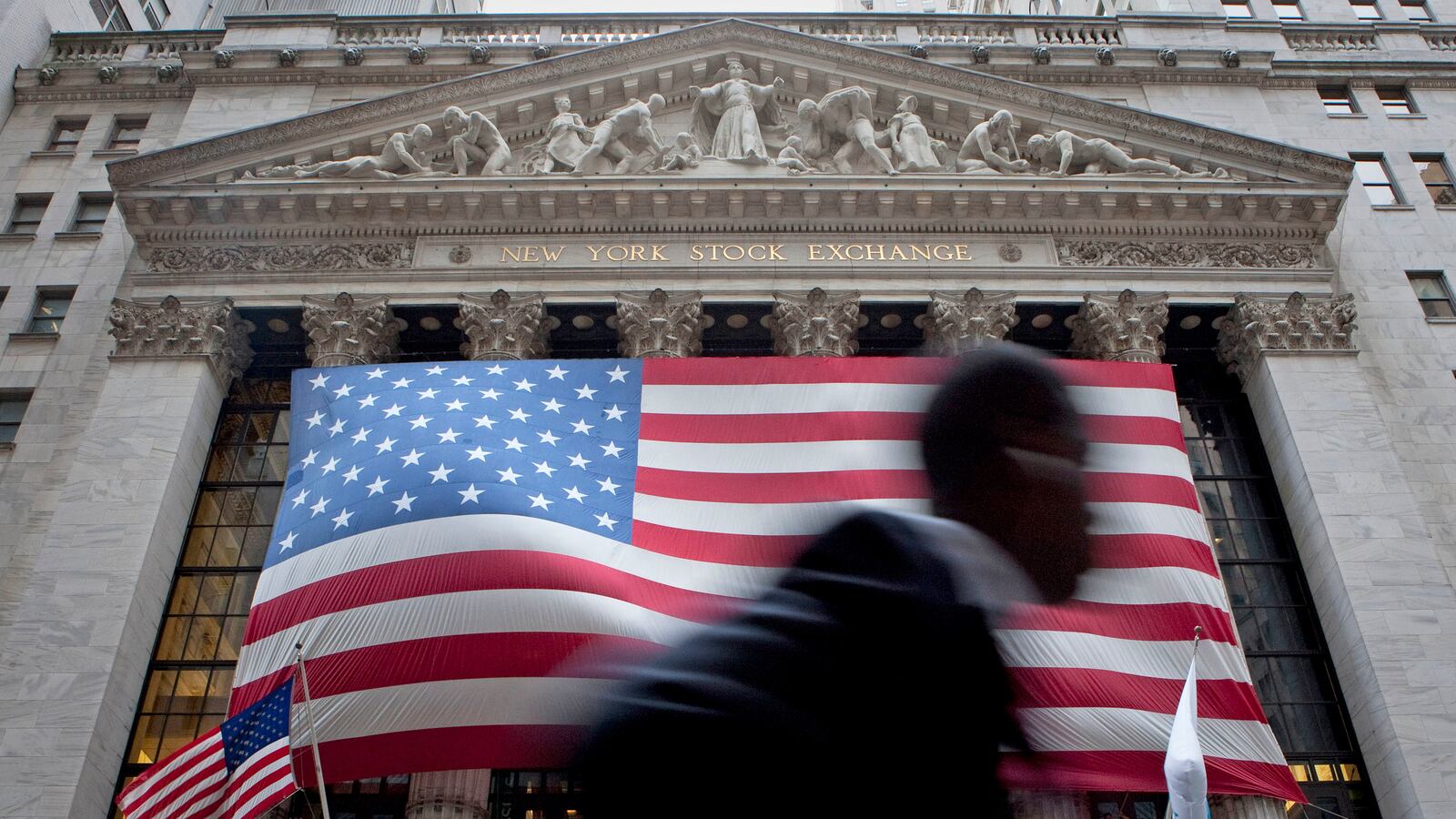So far it’s been a rocky week for the Dow, as it has fallen below its recent 17,000 plateau. Still, have no fear. The New York Times reports that assets across the world are at record levels. But to reap the benefits of the asset boom, you need to be an asset-holder, and that’s not a club that everyone can join. One needs to have cash on hand to buy a Manhattan office building, Brazilian bonds, or even Iowa farmland —and lots of it.
For most working Americans, the story is very different. Income ticks upwards at a crawl. Year to year, private sector wages were up just 2 percent and that was before inflation, which stands at a little over 2 percent. That’s called running in place, but Democrats and Republicans ignore the hollowing out of working and middle-income America.
In contrast, life for the donor base is good, regardless of party. The S&P 500 has grown more than 19 percent over the past year, and more than 6 percent since January 1st. It’s the best of times for a relative few, and the worst of times for many.
Want more stats? To say the least, the recovery is uneven. Overall, our economy shrunk by almost 3 percent in the first three months of 2014—even as the economy of Canada, our neighbor to the north, managed to grow in the midst of the same harsh winter. Yes, unemployment has dropped, but so too has workforce participation.
At the same time, both parties have eagerly seized upon the Supreme Court’s decision in the Hobby Lobby case to vindicate their respective world views, and to rally tribe and troops in an election year. Yet matters that cry out for serious national attention are ignored.
Our infrastructure is antiquated and crumbling. According to the American Society of Civil Engineers, one in nine of America’s bridges is structurally deficient, while the average age of our 607,380 bridges is 42 years. Back when the Soviet Union was threatening us, we made sure that our highways and bridges were world class; not anymore. Sadly, the end of the Cold War has given license to structural decay.
Calls for better roads and bridges are met with denunciations from the right, much as calls for energy development and independence are greeted with instant derision from the left. Getting the highway bill through Congress has emerged as a major challenge.
Or take America’s youth. More than seven-in-ten are ineligible for military service because of poor education, obesity, meds, emotional instability, and extreme body art. That’s right, less 30 percent of young Americans can be considered as prospective soldiers, and no one is sounding an alarm. Younger America is our lost generation, and it’s not just about student loans.
Apparently, this state of misery and decline is fine, or fine enough, for both the White House and the Congress. For the Democrats, their upstairs-downstairs coalition is doing great, or to be more precise, all are doing as well as are to be expected. Upstairs is savoring the stock market’s upward journey. On the low end, Obamacare and expanded Medicaid are now the law of land. There’s something for everyone, except working and middle America, but they’re not part of the Democrats’ coalition.
Over in Republican World there’s enough resentment out there to power the GOP to taking control of both houses of Congress. And to be sure, one can disapprove of Barack Obama without believing that his birth certificate was hand-crafted by space-aliens. The reality is that Obamacare stands to literally cost the Republican base, as it is an income transfer from America’s working and older heartland to the country’s urban precincts, and insurance premiums are expected to rise later this year—just in time for the midterms.
Yet, beyond resentment, the Republicans have little to offer except cuts to Social Security and Medicare, and that’s not smart long-term politics when the party’s base these days is working and middle class, grandma and grandpa. Playing the role of the not-so-loyal opposition may be all that’s needed for Sen. Mitch McConnell (R-Ky.) to become the Senate Majority Leader, but it won’t likely be enough to elect a Republican as president, or to keep the Senate past 2016, when the GOP will be defending the lion’s share of seats during a presidential election year.
Yet not everyone is caught up this vortex of paralysis and resentment. At least Hillary Clinton and Sen. Marco Rubio (R-FL) aren’t. Unlike many in her party, Clinton is talking about how the recovery hasn’t reached a lot of people. In her words, people are “really, really nervous… They don’t think the economy has recovered in a way that has helped them or their families.”
Sure, Clinton sees herself as having the rectitude of a bishop, but entitled to live as well as her congregants—that is, if her flock were in Davos. Her claims of being “dead broke” or “not truly well off” sound almost as empathetic as Marie Antoinette telling folks to eat cake. And Clinton’s mien of acting as though she’s entitled to it all has jogged memories, and started to cost Clinton, as the white working class has moved away from her after a gaffe-filled book tour.
Still, Clinton gets it, at least theoretically or just as a matter of expedience, and so too does Rubio. In a recent speech, Rubio hit upon the right combination of anxiety and hope. According to Rubio, “The American Dream is still attainable. But it has gotten increasingly difficult to achieve for far too many. Wages have stagnated; everyday costs have risen… millions go to sleep each night overcome with the sense that they are one bad break from financial ruin.” Not bad for a party that hated on the 47 percent.
If America is fortunate, the economy will continue to improve, while the 2016 campaign will focus on what ails the country. But then again, that may be expecting too much.






